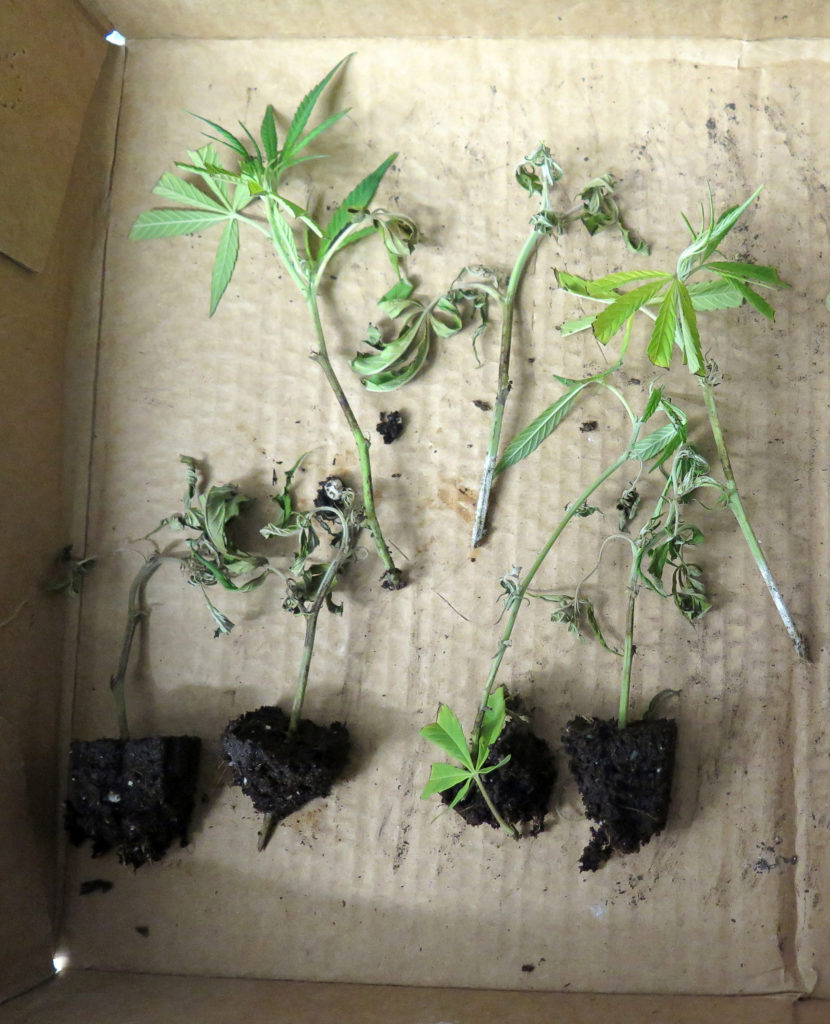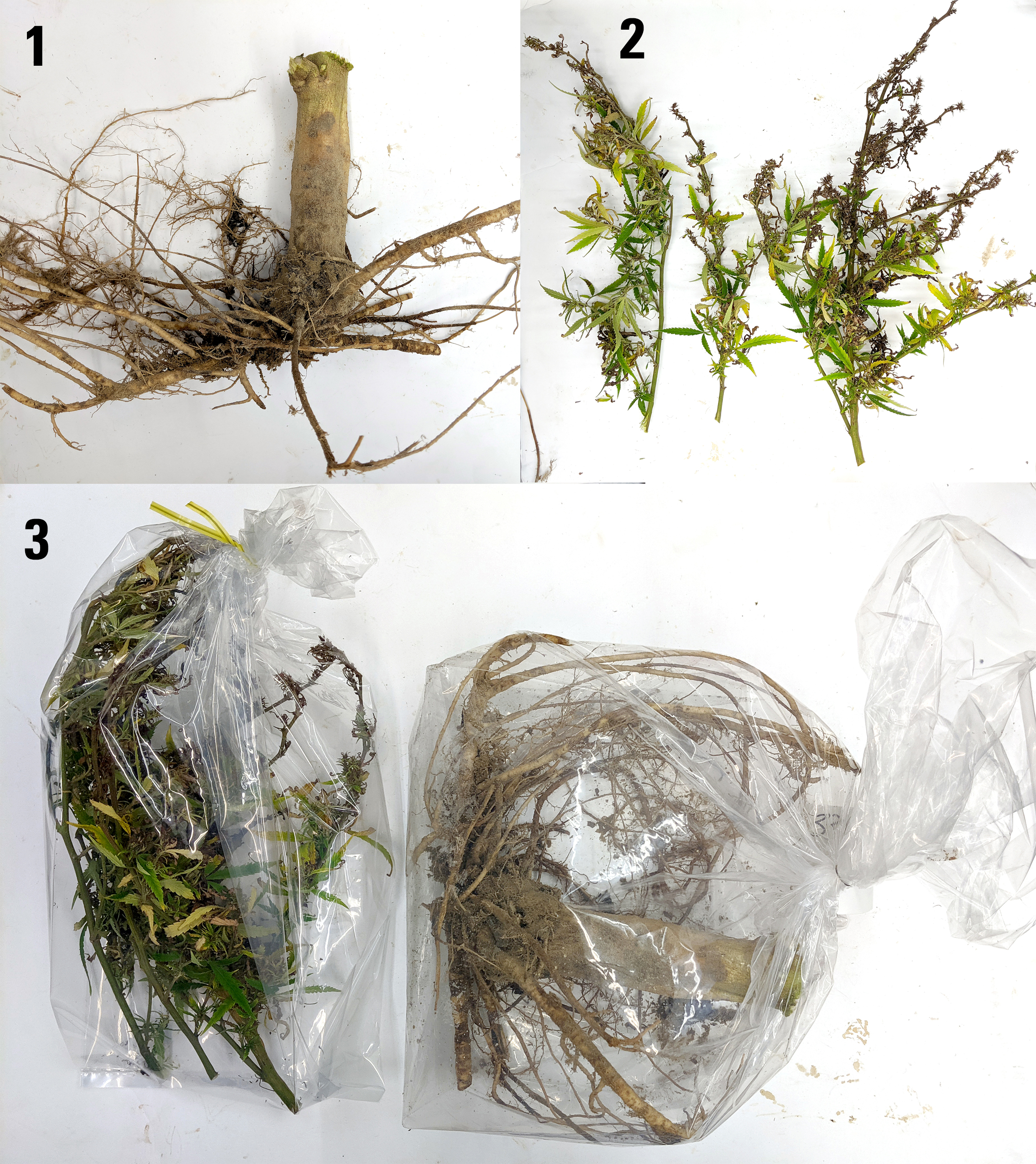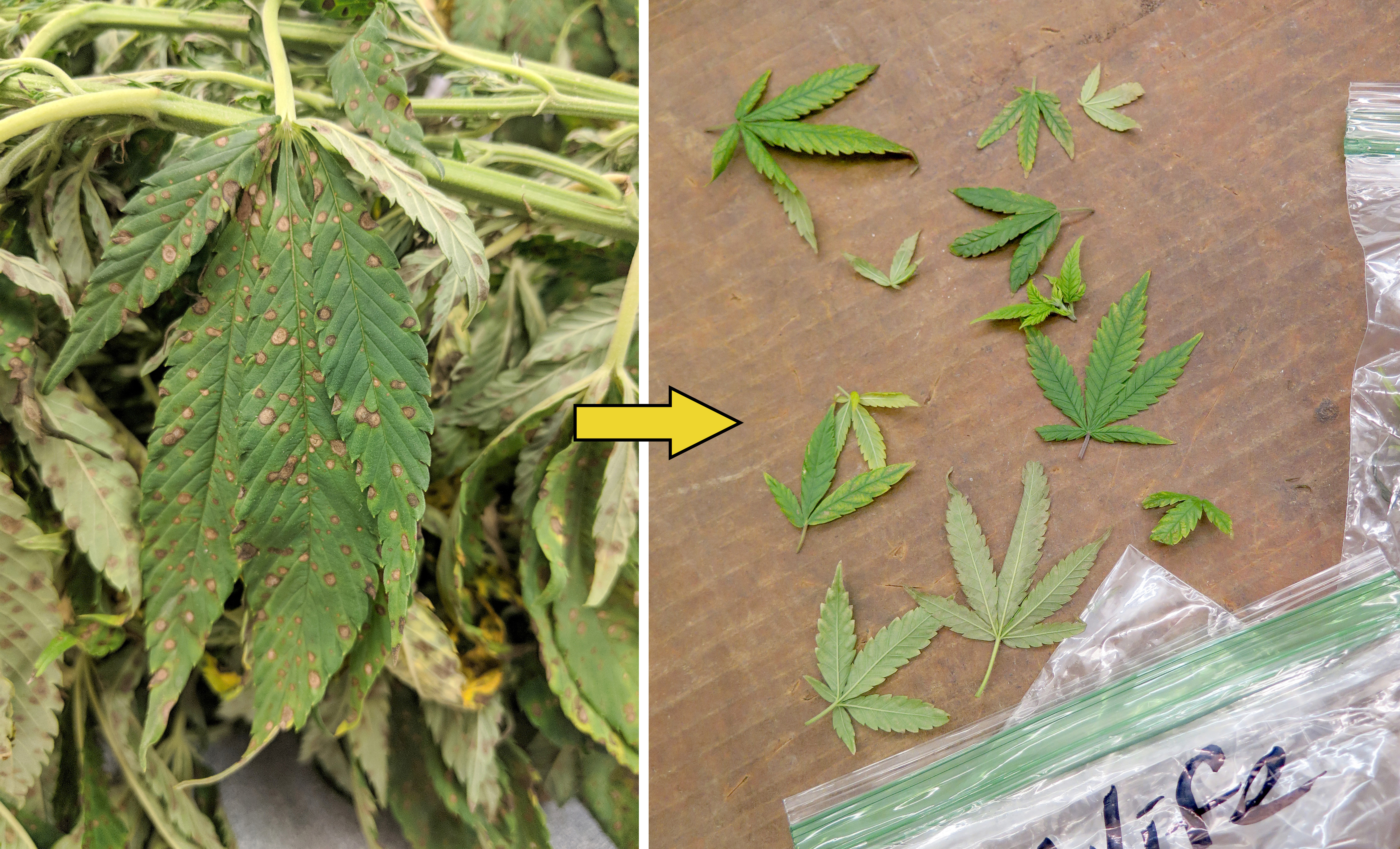Industrial Hemp Sampling
go.ncsu.edu/readext?669524
en Español / em Português
El inglés es el idioma de control de esta página. En la medida en que haya algún conflicto entre la traducción al inglés y la traducción, el inglés prevalece.
Al hacer clic en el enlace de traducción se activa un servicio de traducción gratuito para convertir la página al español. Al igual que con cualquier traducción por Internet, la conversión no es sensible al contexto y puede que no traduzca el texto en su significado original. NC State Extension no garantiza la exactitud del texto traducido. Por favor, tenga en cuenta que algunas aplicaciones y/o servicios pueden no funcionar como se espera cuando se traducen.
Português
Inglês é o idioma de controle desta página. Na medida que haja algum conflito entre o texto original em Inglês e a tradução, o Inglês prevalece.
Ao clicar no link de tradução, um serviço gratuito de tradução será ativado para converter a página para o Português. Como em qualquer tradução pela internet, a conversão não é sensivel ao contexto e pode não ocorrer a tradução para o significado orginal. O serviço de Extensão da Carolina do Norte (NC State Extension) não garante a exatidão do texto traduzido. Por favor, observe que algumas funções ou serviços podem não funcionar como esperado após a tradução.
English
English is the controlling language of this page. To the extent there is any conflict between the English text and the translation, English controls.
Clicking on the translation link activates a free translation service to convert the page to Spanish. As with any Internet translation, the conversion is not context-sensitive and may not translate the text to its original meaning. NC State Extension does not guarantee the accuracy of the translated text. Please note that some applications and/or services may not function as expected when translated.
Collapse ▲The NC State University Plant Disease and Insect Clinic is issuing these guidelines for hemp samples in an effort to streamline the diagnostic process and continue to provide the quickest possible response. Please adhere to the following instructions for submitting hemp samples to the clinic. The clinic reserves the right to turn away or dispose of incorrectly-submitted hemp samples.
Licenses
- The clinic will only accept samples with an associated valid USDA hemp grower’s license.
- The license holder must be included as a contact on the sample form. When entering this person’s information in the address book, provide the license number and expiration date in the provided fields.
- Valid ways to submit a license include the following:
- We will not accept licenses emailed or sent in after the sample is submitted.
- A photocopy of the license can be submitted when the sample is dropped off, or in the shipping package.
- An electronic scan or image of the license can be attached to the online submission form.
- For future samples, the license does not need to be resent as long as it is up to date. It will be stored in the system with the license holder’s contact info.
Collecting plant material & associated insect samples
Hemp plants under 2 feet tall:
- One to three (1-3) plants showing various stages of the same symptoms – including roots and soil (when possible) – may be submitted.
- It is best to wrap the root ball(s) to prevent soil from contaminating the rest of the plant.

Several small plants can be submitted. If possible leave the soil on the roots, but make sure to cover the soil so it does not get on the leaves. It is best to send a few plants representing various degrees of the issue.
Hemp plants over 2 feet tall:
- We will not accept entire plants over 2 feet tall; the following portions should be collected.
- roots and crown, separated and with soil attached (if possible), in a bag, plus
- a few symptomatic branches including healthy portion showing the transition from healthy to dying areas

(1) Remove base, keeping soil attached if possible. (2) Remove symptomatic branches, making sure to cut a few inches before the transition from healthy to unhealthy material. (3) Package the base and branches in separate bags.
- For leaf spots, several symptomatic, live, fresh leaves should be submitted. Do not add water, wet paper towels, etc. to the bag.

Remove several symptomatic leaves and submit in a plastic bag for diagnosis (Note: do not add moisture or wet materials).
- Submit material from no more than two (2) plants for each sample; a sample should represent only one suspected issue on an individual host species.
Insect and mite samples:
- Insects and mites may be sent in on plant material as described above or else collected into a small vial or container of alcohol and sent in alone (or in addition to plant material).
- Some larger insects and arthropods may be identified from clear photographs submitted as an image-only sample.
For more information please contact us at 919-515-3619 or plantclinic@ces.ncsu.edu.


